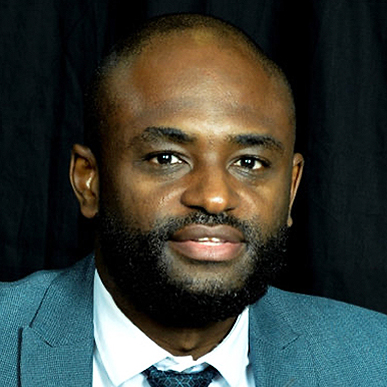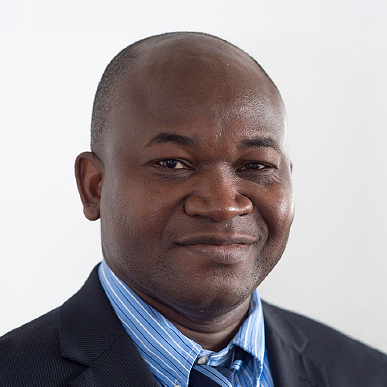Babatunde Fagbayibo: Transcending Member States. Political and legal dynamics of building continental supranationalism in Africa


HUMA Book Launch
Introduction: Africa is currently experiencing one of the most critical phases of its integrative development. Since 2015, there have been increasing efforts to develop policies and practices that grant the African Union (AU) broader powers to coordinate and create binding rules regarding the regional integration process. This has included the decision to finance the AU through a 0.2% tax on eligible imports into member states; the decision to reduce the number of AU Commission portfolios from eight to six; the adoption and entry into force of the much-touted Agreement establishing the African Continental Free Trade Area; the adoption of the Protocol to the Treaty Establishing the African Economic Community Relating to Free Movement of Persons, Right to Residence and Right of Establishment; and the adoption of the AU Agenda 2063 policy framework in 2015. These processes seek to endow the AU with supranational powers like those exercised by the European Union, which, despite its internal problems, remains the most successful experiment in supranationalism in the world. This book explores innovative and context-driven political and legal policy measures designed to expand the powers of the AU in order to meaningfully drive the continental integration process. In this regard, the book addresses issues of context, political will, and innovative and inclusive approaches as essential elements that must be considered. How these processes will change the direction of regional integration in Africa, the book argues, largely depends on the existence of quality-driven institutions. See the book: Transcending Member States: Political and legal dynamics of building continental supranationalism in Africa (Springer, 2022).
Read book extract
Extract made available with the kind permission of the author.

About the author: Babatunde Fagbayibo is currently a Professor of Law at the University of South Africa (Unisa). His research primarily focuses on the institutional development of the African Union (AU), in particular, the process of endowing AU institutions with supranational powers. Other research interests include African politics, transnational policy analysis, critical approaches to international law, and governance and democratisation in Africa. He has written widely on these topics. He has acted as a consultant for the African Union on issues of democratisation and constitutional governance. He also provides commentary in print and broadcast media on African affairs. He is a South African National Research Foundation (NRF) C2-rated researcher. He was a visiting professor of law at the University of Lisbon, Portugal, in 2015. Similarly, he has been invited to give lectures at institutions such as the University of Coimbra (Portugal), University of Pretoria (South Africa), University of Cambridge (United Kingdom), and Carleton University (Canada). He is the Editor in Chief of the Southern African Public Law Journal (SAPL). In addition, he is on the editorial and advisory boards of the African Journal of Democracy and Governance (RADG) and the Nigerian Yearbook of International Law (NYIL).

Discussant: Dr Femi Amao is a Reader in Law at the Sussex Law School, UK. He was previously a senior lecturer in Corporate/Commercial Law at the Sussex Law School (2015–2019), lecturer in International Commercial Law at the Brunel Law School, Brunel University, London (2009–2015) and a lecturer in Law at the University College Cork, Ireland (2008–2009). He is the author of African Union Law: The Emergence of a Sui Generis Legal Order (Routledge, 2019) and Corporate Social Responsibility, Human Rights and the Law: Multinational Corporations in Developing Countries (Routledge, 2011). His recent co-edited book is The Emergent African Union Law: Conceptualization, Delimitation, and Application (Oxford University Press, 2021). Femi is a graduate of the University College Cork, Ireland (PhD and PG Cert 2009), where he was awarded a President's scholarship for his research. He also graduated from the University of Warwick, UK (LLM, 2005), the University of Ibadan, Nigeria (LLM, 2003), the Obafemi Awolowo University, Nigeria (LLB, 1997) and the University of Ilorin, Nigeria (BA, 1991). He was called to the Nigerian Bar in 1999 and worked as a barrister in Nigeria with a prominent law firm representing the government and major multinational corporations. He has published articles in reputable national and international journals, including the Australian Journal of Corporate Law, Journal of African Law, Journal of Business Ethics, Dublin University Law Journal, Australian Journal of Legal Philosophy, Journal of International Economic Law, Journal of Corporate Citizenship, International Journal of Human Rights, Hastings International and Comparative Law Review and UCD Law Review. He has also published chapters in books including André Nollkaemper and Ilias Plakokefalos (ed.) The Practice of Shared Responsibility in International Law (Cambridge University Press, 2016); M. Ssenyonjo (ed.) The African Regional Human Rights System: 30 Years after the African Charter on Human and Peoples' Rights. (Martinus Nijhoff, 2012). He is a frequent speaker at national and international conferences in his areas of expertise. He is the PI for the African Union Law research project, funded by the Arts and Humanities Research Council (AHRC).